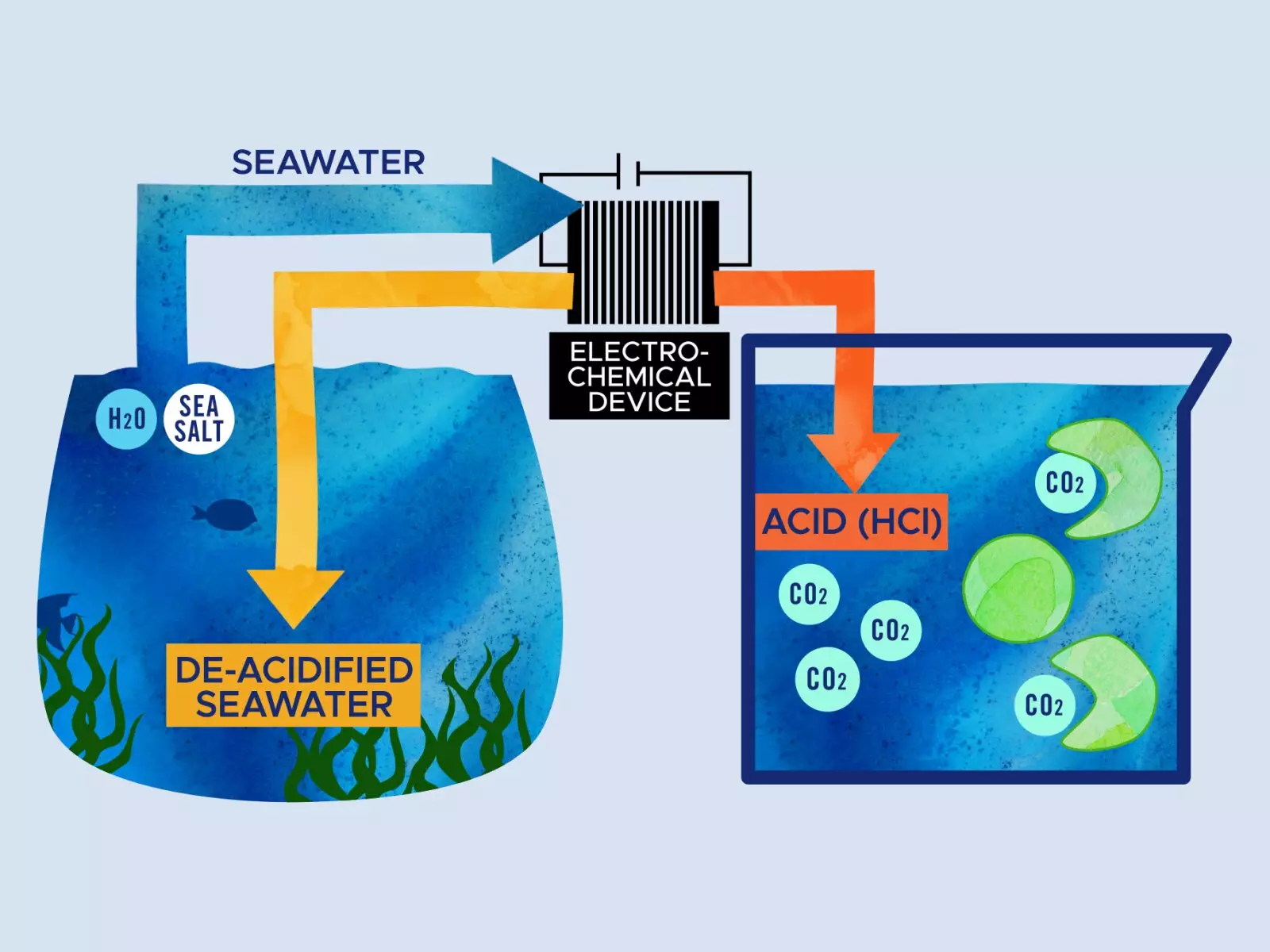From providing oxygen through photosynthesis to serving as food for marine life, marine algae play a crucial role in the ecosystem. Their potential goes beyond sustaining marine life; they can also be utilized to create eco-friendly plastics and fuel. One method of leveraging marine algae for commercial purposes is through aquaculture. However, traditional aquaculture practices often involve the use of carbon dioxide to accelerate algae growth, leading to carbon emissions that counteract any environmental benefits.
Researchers at the Department of Energy’s Pacific Northwest National Laboratory (PNNL) have proposed a solution to make aquaculture more carbon neutral by combining algae cultivation with marine carbon dioxide removal (mCDR). By utilizing the acid byproduct from an electrochemical process that increases ocean alkalinity, researchers were able to enhance algae growth.
Ocean acidification, a consequence of climate change, poses a threat to marine ecosystems. To counteract this phenomenon, scientists have developed bipolar membrane electrodialysis, a technology that splits seawater into acidic and basic streams. By increasing ocean alkalinity with this method, it is possible to neutralize ocean acidity and enhance carbon dioxide absorption.
Algae’s ability to absorb carbon dioxide and produce oxygen makes them valuable assets in the fight against climate change. Through experiments conducted at PNNL, researchers demonstrated that algae growth significantly increased when exposed to the acidic stream generated by the electrochemical process. By harnessing this waste stream, algae cultivation can be optimized for carbon sequestration.
The integration of electrochemical mCDR with aquaculture holds promise for sustainable algae cultivation. Algae can be utilized for various purposes, such as biofuel production and the feeding of shellfish. This innovative approach showcases the potential for combining nature-based solutions with technological advancements to address climate change.
As the world faces the challenges of climate change, it is imperative to explore innovative solutions that promote sustainability. By leveraging the carbon-eating capabilities of marine algae and utilizing advanced technologies like electrochemical mCDR, the aquaculture industry can progress towards carbon neutrality. This interdisciplinary approach highlights the importance of collaboration between science and nature to create a more resilient and environmentally friendly future.



Leave a Reply